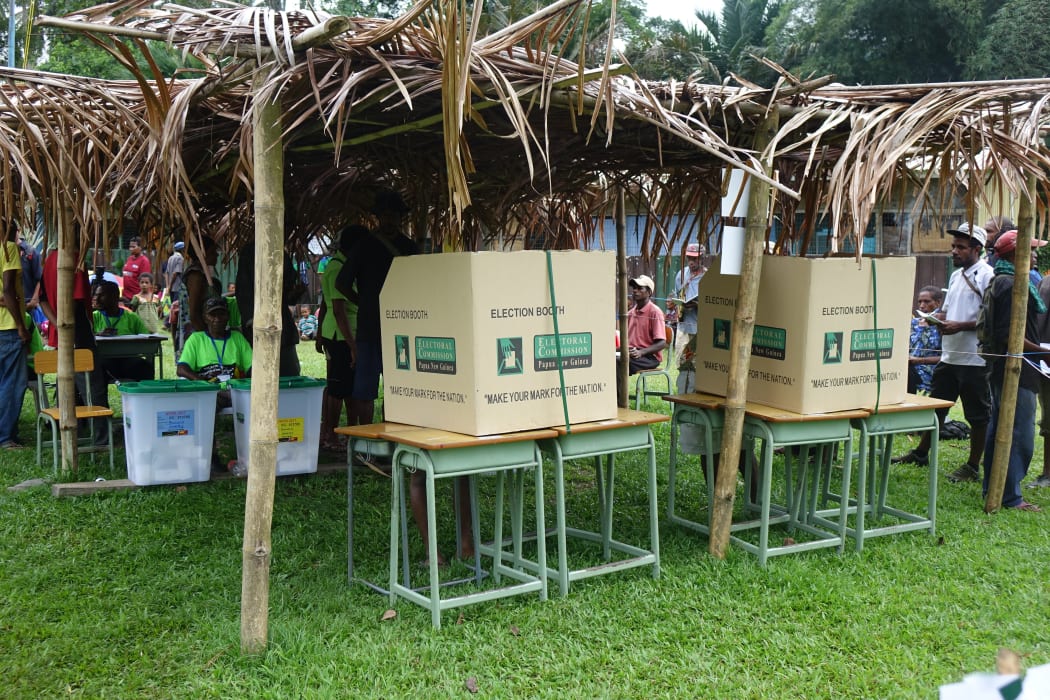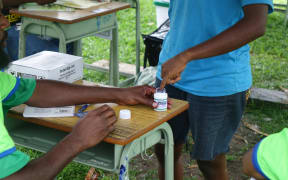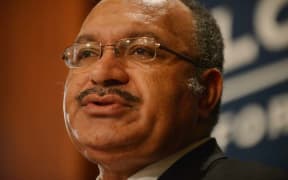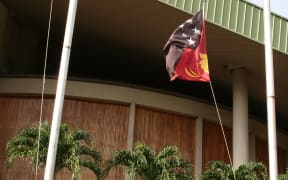Papua New Guinea's prime minister has flagged a return to the First Past the Post electoral system.

Polling station in Bulolo District, Papua New Guinea national election 2017. Photo: RNZ / Johnny Blades
The Post Courier reports that Peter O'Neill made the remarks at a forum yesterday, in which he flagged electoral reforms, boundary changes and new provinces.
Mr O'Neill said he will bring the proposed reforms to the April sitting of parliament.
PNG introduced Limited Preferential Voting in 2003. In this system, voters rank candidates according to preference, with low-polling candidates eliminated and votes re-distributed until someone gains an outright majority.
According to the electoral commission, LPV was introduced to encourage cooperation between rival clans - because one vote under FPP often led to customary obligations dicating results in districts.
It was also introduced to counter MPs concentrating their efforts and services on small parts of electorates, with some members voted in with as little as 10 percent of the vote.
It didn't, however, rid PNG of flaws in the electoral process, corruption, or violence between supporters of rival candidates. Last year's vote was labelled by some observers as one of PNG's worst.
In his address on Monday, Mr O'Neill said the LPV system was drawn-out and costly, with the country paying US$156 million for the three-month polling period.
"Look at Australia, they have an election - 20 million people, they get updates daily….we've sent so many election observers there every elections, I don't know what they are doing…but from my simple observation, I see that elections in every ward - 8 am to 4 pm….this is Australia - start counting right in front of the people and results come on sight with election results coming out every day - and these are what we want here in PNG," he said.
"We all come from villages and we all know who is going to get how many votes and let's not fool ourselves by carrying all these ballot boxes all around the country, hoping that votes will come from everywhere," he said.
Mr O'Neill said the reform proposal would include splitting up some of the country's larger electorates, and balancing the population across them. Some electorates have as many as 200,000 people, he said, while others have 30-40,000.





